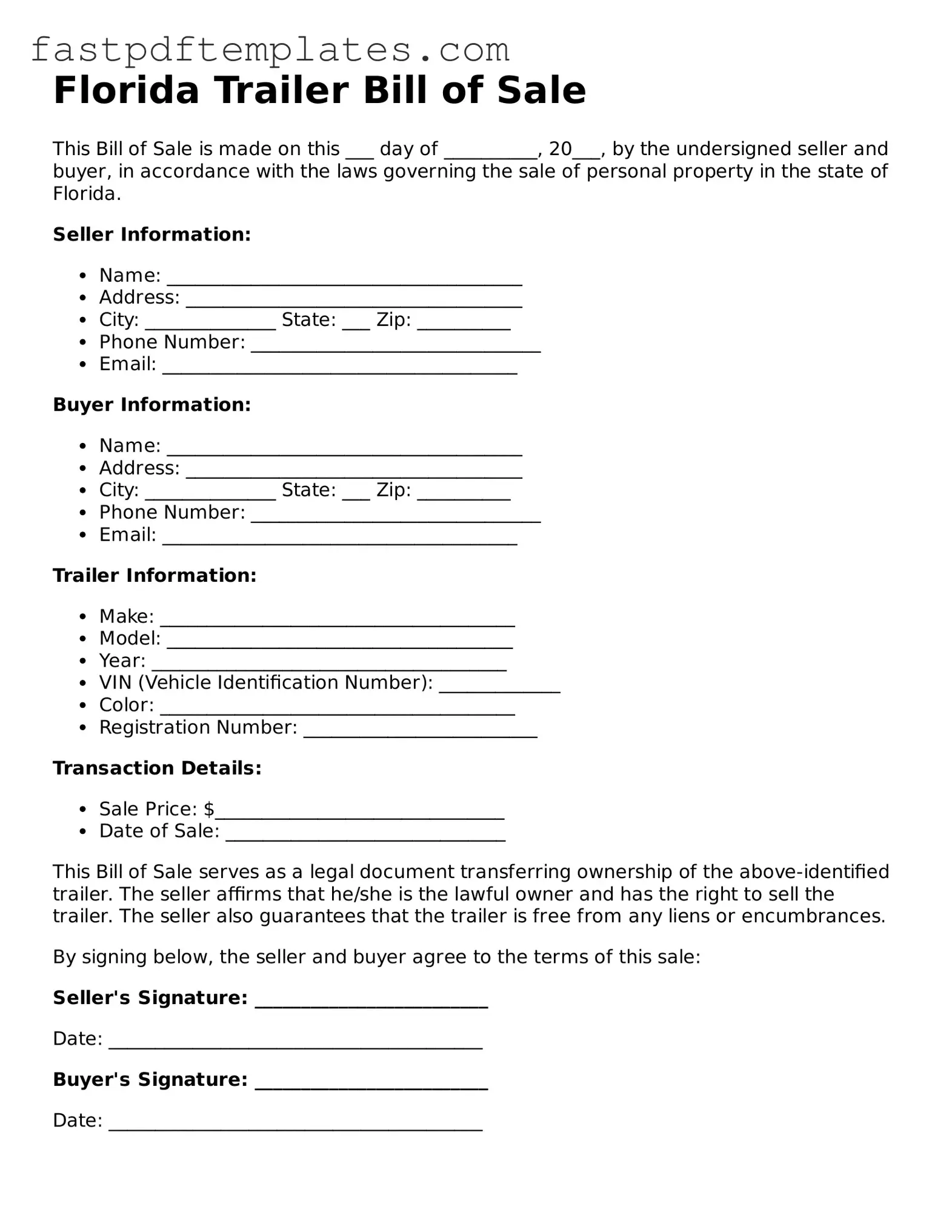The Florida Trailer Bill of Sale form serves a specific purpose in the transfer of ownership for trailers, but it shares similarities with several other important documents. One such document is the Vehicle Bill of Sale. Much like the Trailer Bill of Sale, this form is used to record the sale of a vehicle, providing proof of the transaction and details about the buyer and seller. Both documents typically include information such as the purchase price, vehicle identification number (VIN), and a description of the vehicle or trailer being sold.
Another document that parallels the Trailer Bill of Sale is the Boat Bill of Sale. This form is essential when transferring ownership of a boat and, similar to the trailer document, it includes essential details about the vessel, such as its make, model, and hull identification number. Both documents serve to protect the interests of both the buyer and seller by providing a written record of the transaction.
The Motorcycle Bill of Sale is also comparable to the Trailer Bill of Sale. This document is used specifically for the sale of motorcycles and contains similar elements, including the buyer's and seller's information, motorcycle details, and the sale price. Each bill of sale ensures that both parties have a clear understanding of the transaction and can refer back to the document if any disputes arise.
In addition, the ATV Bill of Sale is another relevant document. Like the Trailer Bill of Sale, it is used to document the sale of an all-terrain vehicle. The form includes pertinent details such as the ATV's make, model, and VIN, ensuring that the transfer of ownership is recorded properly. Both documents help to establish legal ownership and can be useful for registration purposes.
The Snowmobile Bill of Sale shares similarities with the Trailer Bill of Sale as well. This document is specifically designed for the sale of snowmobiles and contains similar information, including the buyer and seller's details and the snowmobile's specifications. Both forms serve as legal evidence of the transaction and can be critical for future registrations or legal issues.
Another document that functions similarly is the Personal Watercraft Bill of Sale. This form is used for the sale of personal watercraft, such as jet skis. Much like the Trailer Bill of Sale, it records the details of the transaction and provides both parties with a written record that can be referred to later. Each bill of sale establishes a clear transfer of ownership.
The Farm Equipment Bill of Sale is also akin to the Trailer Bill of Sale. This document is used when selling agricultural machinery and includes information about the equipment, such as its type and condition. Both documents help to document the sale and protect the rights of both the buyer and seller in the transaction.
Similarly, the Mobile Home Bill of Sale is comparable to the Trailer Bill of Sale. This document is specifically for the transfer of ownership of mobile homes, providing essential details about the property being sold. Both forms serve as proof of the transaction and include necessary information to ensure a smooth transfer of ownership.
Lastly, the RV Bill of Sale is another document that shares characteristics with the Trailer Bill of Sale. Used for the sale of recreational vehicles, this form includes details about the RV, such as its make, model, and VIN. Both documents facilitate the transfer of ownership and serve as important legal records for both parties involved in the transaction.

